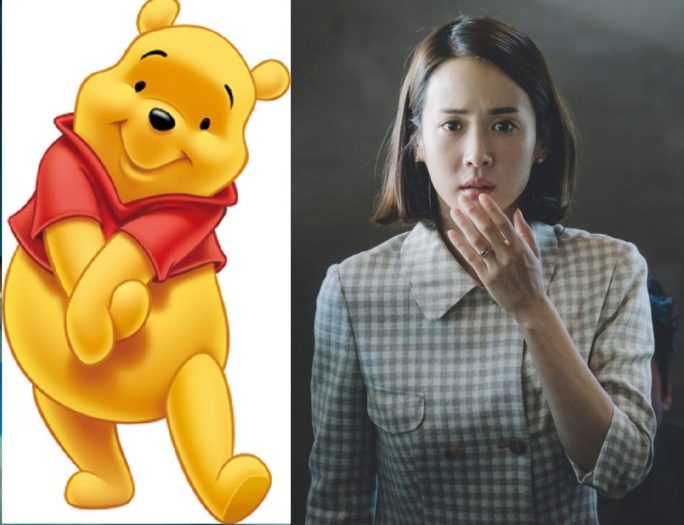Published in the Nikkei Asian Review 26/2/2020
Going to the cinema in Britain these days is something like spinning an LP – an old-fashioned activity which is totally foreign to the millennial generation. I still treasure my vinyl, and I enjoy the occasional trip to the cinema, especially the intimate, luxurious kind with soft banquettes and holders for wine bottles and glasses.
Such were the surroundings in which I watched Bong Joon-ho’s Parasite in a leafy suburb of north London a few days after it had won a clutch of Oscars, including best film of the year and best director. Without giving too much away, I would describe it as an entertaining satire-cum-splatter flick, rather as if Hirokazu Koreeda’s Shoplifters had been directed by Quentin Tarantino.
Well acted? Certainly. Cinematography? Top notch. Story? Hmmm… engaging, but marred by implausible twists and lack of character development. Shoplifters is a far more subtle and emotionally involving work.
Parasite is likely to be remembered less for its artistic merits than for becoming the first foreign language film in the ninety two year history of the Oscars to win the accolade of best film of the year. In so doing, Bong Joon-ho has accomplished what such masters of cinema as Akira Kurosawa, Ingmar Bergman, Federico Fellini and François Truffaut never could.
This is not a reflection of relative merit. Those directors lived and worked in a pre-globalization era when the United States dominated the world economically and culturally. Box office takings in the American domestic market were all important to a film’s success or failure – and the American masses had no stomach for subtitled foreign films.
Hence the predilection for inferior remakes such as The Magnificent Seven (from Kurosawa’s Seven Samurai) and Breathless (from Jean-Luc Godard’s À Bout de Souffle). The originals of these and many other foreign-language masterpieces had only cursory and /or greatly delayed screenings in the world’s most important market.
According to film scholar Stephen Follows, in 1991, the box office takings for Hollywood films split 70% North America and 30% international. By 2019, the proportions had reversed, with North America accounting for just 27%. The overwhelming majority of film-goers watch Hollywood films with subtitles and will have no resistance to watching non-English language films with subtitles too. Hollywood’s sudden embrace of “diversity”, as symbolized by Bong’s Oscar award, is simply a question of following the cash-flows.
It is clearly a good thing that vibrant national film cultures such as Korea’s should enjoy greater international prominence. Hopefully, the Oscar for Parasite will be the first of many such awards for interesting films from all parts of the world. Who knows – it might even encourage a wider American audience for foreign films in their original form. As Bong said in his Oscar acceptance speech, “once you overcome the one-inch-tall barrier of subtitles, you will be introduced to so many more amazing films.”
Yet in the world of cinema, as in many other areas, globalization brings serious risks as well as benefits. Paradoxically, the era of multi-cultural diversity is also the era of stultifying homogeneity, as global box office receipts are dominated by brainless superhero fare, chase movies and further instalments of the interminable Star Wars saga. Not for nothing did the great Martin Scorsese liken such films to “theme parks,” offering audiences thrill and spills, but no “mystery, revelation or emotional danger.”
Equally disturbing is the willingness of Hollywood studios to bow to the political whims of the mainland Chinese authorities in order to access China’s enormous movie market. In the original Doctor Strange comic of 1963, the Doctor’s aged mentor is a Tibetan monk, but in the film version, the character becomes a white woman.
Even in the fantasy world of Marvel superheroes, Tibetan culture is not allowed to exist. Needless to say, you will never see Richard Gere – a fine actor but also well-known as a sympathizer of the Dalai Lama – in a contemporary Hollywood blockbuster of any genre.
Former advisor to President Donald Trump Steve Bannon described Disney as the American company that has “done the most kowtowing to the Chinese Communist Party”, but even the owner of the Star Wars, Marvel and Mickey Mouse franchises slips up sometimes. Chinese censors banned its 2018 offering Christopher Robin because Chinese netizens had been joking about the supposed resemblance between President Xi Jinping and Christopher’s imaginary friend. Winnie the Pooh, like Richard Gere, has been cancelled in China.
Globalization has lifted hundreds of millions of people out of poverty and brought down the price of the clever electronic gadgets that surround us. At the same time, it has disrupted communities, wreaked environmental chaos, and allowed coronavirus to jump from country to country, shutting down supply chains and setting off health panics all over the world.
If the Oscar for a subtitled foreign film symbolizes the positive side of globalization, Disney’s self-censorship epitomizes the negative side. In the early years of this century, there was a benignly naive view in Washington that as China became richer, it would become more “Western,” politically speaking.
The reality is the other way around. The richer China gets, the more “Chinese” the West is becoming.



